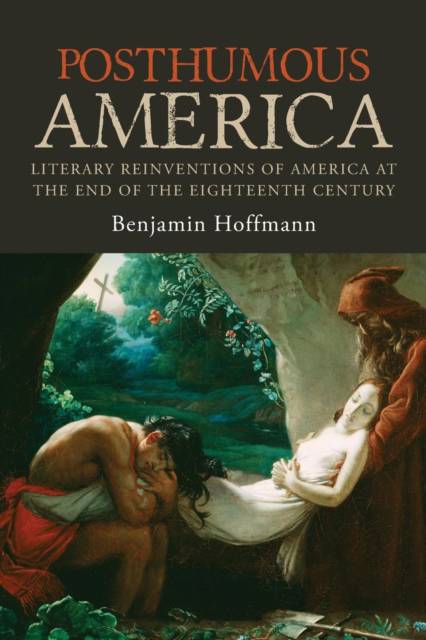
- Retrait gratuit dans votre magasin Club
- 7.000.000 titres dans notre catalogue
- Payer en toute sécurité
- Toujours un magasin près de chez vous
- Retrait gratuit dans votre magasin Club
- 7.000.0000 titres dans notre catalogue
- Payer en toute sécurité
- Toujours un magasin près de chez vous
Posthumous America
Literary Reinventions of America at the End of the Eighteenth Century
Benjamin HoffmannDescription
Benjamin Hoffmann's Posthumous America examines the literary idealization of a lost American past in the works of French writers of the eighteenth and nineteenth centuries.
For writers such as John Hector St. John de Crèvecoeur and Claude-François de Lezay-Marnésia, America was never more potent as a driving ideal than in its loss. Examining the paradoxical American paradise depicted in Crèvecoeur's Lettres d'un cultivateur américain (1784); the "uchronotopia"--the imaginary perfect society set in America and based on what France might have become without the Revolution--of Lezay-Marnésia's Lettres écrites des rives de l'Ohio (1792); and the political and nationalistic motivations behind François-René Chateaubriand's idealization of America in Voyage en Amérique (1827) and Mémoires d'outre-tombe (1850), Hoffmann shows how the authors' liberties with the truth helped create the idealized and nostalgic representation of America that dominated the collective European consciousness of their times. From a historical perspective, Posthumous America works to determine when exactly these writers stopped transcribing what they actually observed in America and started giving imaginary accounts of their experiences.
A vital contribution to transatlantic studies, this detailed exploration of French perspectives on the colonial era, the War of Independence, and the birth of the American Republic sheds new light on the French fascination with America. Posthumous America will be invaluable for historians, political scientists, and specialists of literature whose scholarship looks at America through European eyes.
Spécifications
Parties prenantes
- Auteur(s) :
- Traducteur(s):
- Editeur:
Contenu
- Nombre de pages :
- 256
- Langue:
- Anglais
Caractéristiques
- EAN:
- 9780271080086
- Date de parution :
- 15-07-19
- Format:
- Livre broché
- Format numérique:
- Trade paperback (VS)
- Dimensions :
- 152 mm x 229 mm
- Poids :
- 376 g

Les avis
Nous publions uniquement les avis qui respectent les conditions requises. Consultez nos conditions pour les avis.






